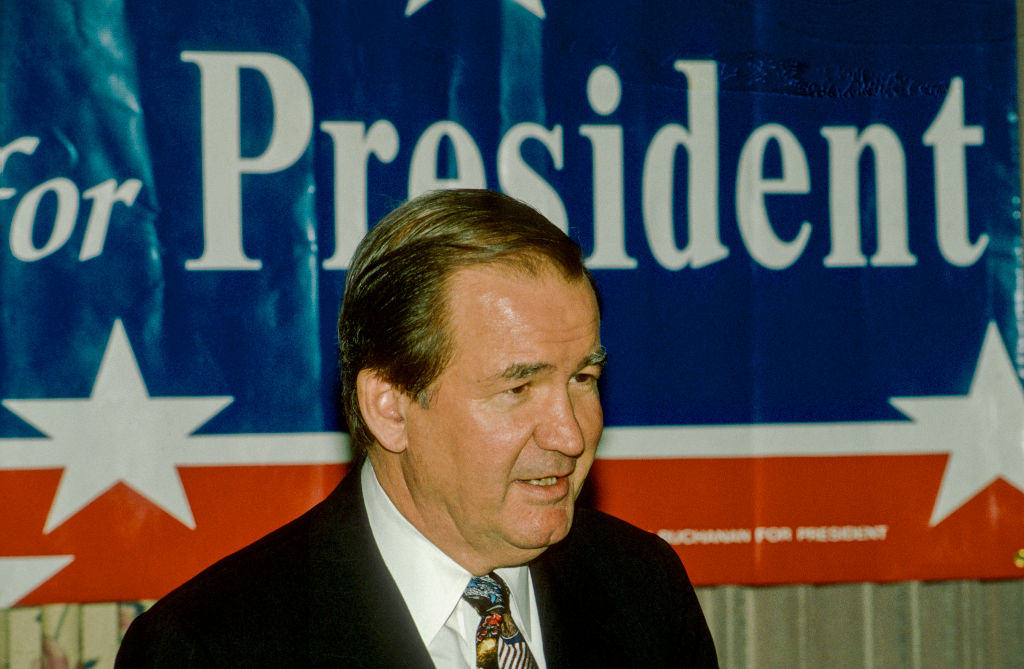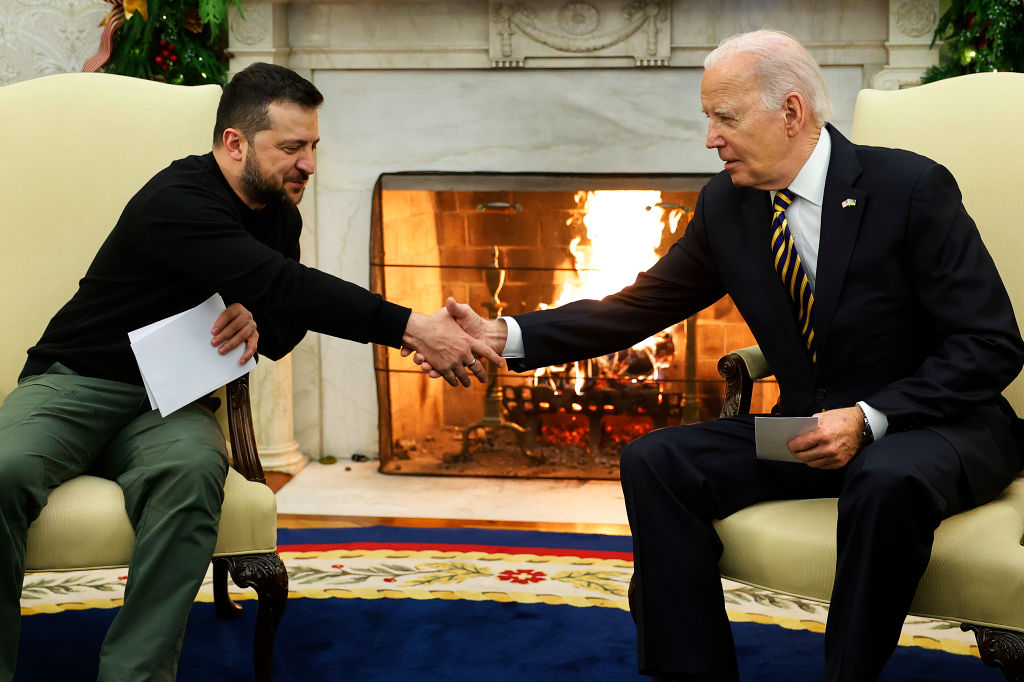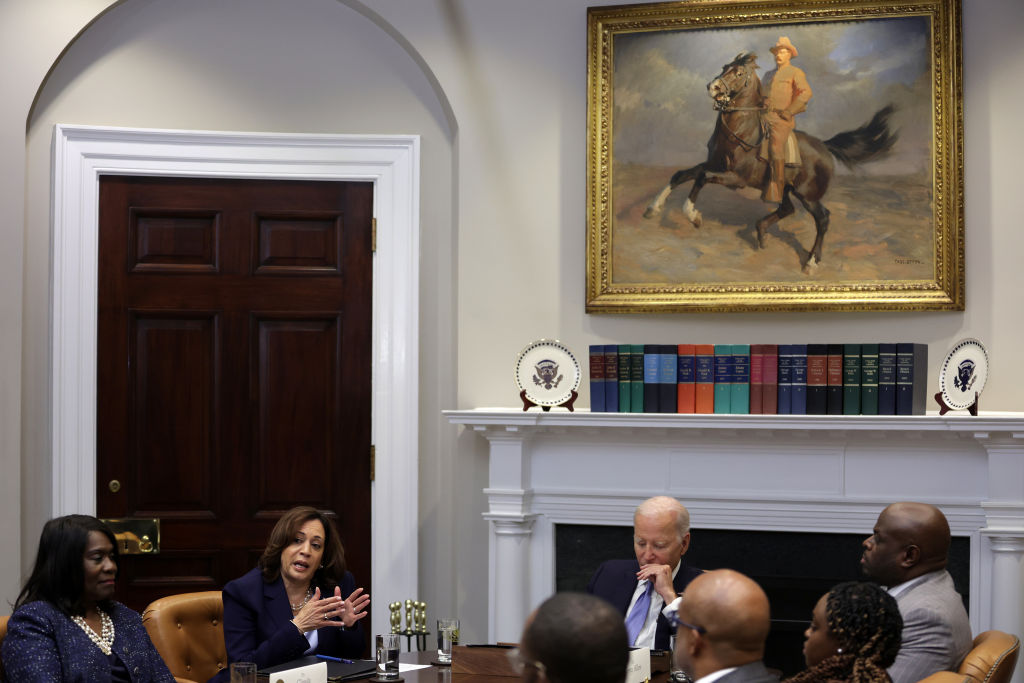The unceasing woes of East Africa.
Patrick Buchanan and American Foreign Policy

Self-government requires a real choice in elections.
Writing in National Review Online, Jack Butler takes issue with Heritage Foundation President Kevin Roberts’s high praise of Patrick Buchanan in a recent speech. For those who think that the challenges of our time call for a more populist and nationalist Right, it is a striking and welcome development to see Heritage’s leader invoke the political lessons that can be learned not only from Ronald Reagan but also from Pat Buchanan.
Butler, however, thinks that Roberts’s celebration of Buchanan is largely problematic. After admitting that it was a mistake for an earlier generation of conservatives to read Buchanan out of the movement for opposing the Iraq War, Butler nevertheless suggests that praise for Buchanan is out of place “at this moment”—meaning, in the wake of the Hamas attacks on Israel. Buchanan’s post-Cold War record, Butler suggests, was largely one of “reflexive hostility toward Israel.”
No doubt Buchanan and his defenders would reply that he was not reflexively hostile to Israel but was instead opposing those he thought were reflexively and imprudently attached to the belief that America’s interests and Israel’s are one and the same. In any case, I think Butler errs in letting his concerns about this issue obscure the broader value—rightly highlighted by Roberts—of continued reflection on Buchanan’s political legacy.
Pat Buchanan’s career of political commentary and activism offers American conservatives lessons that are both of enduring value and that are vitally important “at this moment” in our nation’s history.
In foreign policy, Buchanan championed a traditional realism holding that the primary aim of American statecraft should be to secure the country’s vital interests. This placed him at odds with neoconservatives and liberals who thought American foreign policy should be at the service of ideological goals like the promotion of western conceptions of democracy and human rights. His critics accused him of departing from the best traditions of American foreign policy, since universalist goals like the defense of freedom in the world had animated America’s conduct in the Cold War struggle with the Soviet Union. Buchanan retorted, quite reasonably, that the Cold War was over, that the threat of worldwide Communist revolution was gone, and that he was accordingly trying to return us to the more modest, national interest based foreign policy of the American Founders. He had a point, as anyone can see who has read George Washington’s “Farewell Address,” with its warning about the dangers of permanent alliances with, and passionate attachments to and antipathies for, any foreign nations.
Buchanan warned that the high-minded but dim-witted foreign policy favored by our ruling elites was leading us into military misadventures in distant lands that would have enormous costs in blood and treasure. Looking back on America’s lengthy efforts at forceful nation building in Iraq and Afghanistan, few today would be able to dismiss such a warning as wrongheaded.
Moreover, and also very relevant to the present “moment” in foreign policy, Buchanan warned repeatedly that NATO expansion was a hubristic ideological project that served no vital American interest, that it would unnecessarily and dangerously antagonize Russia, and that it would probably lead to American humiliation, since the American public would not support sending American soldiers to defend nations in central and eastern Europe.
The present debacle in Ukraine is a complete vindication of Buchanan on these issues.
That unfortunate country is now suffering massive losses of life, wealth, and territory in its war with Russia. The war came because America’s foreign policy elites insisted that Ukraine should seek NATO membership—even though Russia warned repeatedly over many years that it regarded Ukraine’s admittance to NATO as an existential threat. America has supported Ukraine enough for it to reject a negotiated settlement with Russia and for the war to continue—but not enough for Ukraine to win.
The results are catastrophic for both Ukraine and America. Ukraine is being wrecked. America, by taking on a fight it did not need in the first place, has maneuvered itself into a position in which it has no good options. It must now either embrace the grave risks of escalation to try to snatch victory from the jaws of defeat, or it must face the dangerous humiliation of failure, which will undermine belief in American ability to project power and will accordingly invite aggression on the part of our adversaries elsewhere. All this to defend no vital American interest, but just so our foreign policy elites can preen themselves on being defenders of democracy.
This brings us to the second way in which Buchanan’s career still merits careful attention—both on the Right and among all Americans. His insurgent campaigns for the Republican nomination for the presidency in the 1990s, and his failed Reform Party candidacy in 2000, were attempts to revitalize self-government at home by highlighting issues that had been neglected, and by giving voice to voters who had been ignored by the country’s governing establishment. Our disastrous foreign misadventures have been bipartisan projects, cheered and supported by the leading figures of both the Republican and Democratic parties. Indeed, more broadly speaking, as Kevin Roberts rightly reminds us, the “tectonic shifts in federal policy that upended our national life” in the last generation, and that led to the populist revolt in American politics of which Pat Buchanan was the first herald, were all “shamefully bipartisan.”
An interventionist foreign policy in support of a “new world order,” high levels of legal immigration and desultory efforts to control unlawful entry, a dogmatic commitment to free trade that required “most favored nation” trading status with rival nations like China and American ratification of free trade instruments like the World Trade Organization and the North American Free Trade Agreement—all of these policies, Roberts notes, were pushed forward by leaders of both parties with minimal consultation with the American people, despite ample evidence of their unpopularity.
This is rather strange and unsettling, at least for those who think that Americans should be a genuinely self-governing people. These issues are all inherently controversial. They carry important consequences for the kind of country we will have, and serious economic consequences for ordinary Americans, especially working-class Americans. You would think that in a healthy democracy there would be partisan competition over these issues. That is, in a healthy democracy, one that offered voters a real choice on all the key issues, there would be a pro-interventionist, pro-immigration, and pro-free trade party, on one hand, and an opposition party that is skeptical of all those commitments, on the other. To put it more simply, a healthy representative democracy would offer the voters a cosmopolitan party and a nationalist party.
But it has not been so. You get the impression that on these issues America’s two major political parties operate as a kind of cartel, controlling and confining the options from which the voters are permitted to choose. And that impression leads naturally to the suspicion that those who have the most power in our country don’t really believe much in government by the people. This is a very real crisis in relation to one of America’s most important promises—the promise of self-government—that Pat Buchanan tried to address by building a political movement that would give the American people a real choice on these vital questions. That project is just as important now as when Buchanan launched it in 1992.
The American Mind presents a range of perspectives. Views are writers’ own and do not necessarily represent those of The Claremont Institute.
The American Mind is a publication of the Claremont Institute, a non-profit 501(c)(3) organization, dedicated to restoring the principles of the American Founding to their rightful, preeminent authority in our national life. Interested in supporting our work? Gifts to the Claremont Institute are tax-deductible.
American institutions are unwinding.
Zelensky’s position is getting more untenable by the day.
USAID has embraced gender and sexuality equality as America's key cultural export.
A brief discussion regarding theories of international relations.
Securing America’s interests should be the guiding principle of our nation’s foreign policy.






